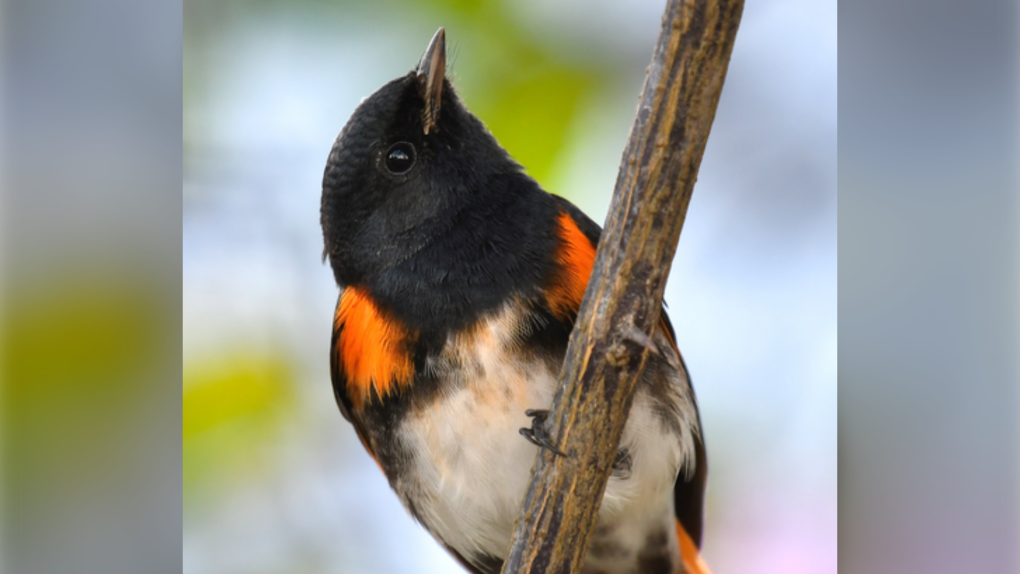Climate change is turning bird migration topsy-turvy according to a new study; making birds wait longer to migrate in the spring and fly faster to try and complete their migration in less time.
And it’s not just tiring the birds out — it’s cutting down their survival rate.
Researchers looked at more than three decades of migration data for one bird species to analyze how their migration patterns had changed over a long period of time.
“We found that our study species, the American redstart, can migrate up to 43 per cent faster to reach its breeding grounds after delaying departure from wintering grounds in Jamaica by as much as 10 days,” Bryant Dossman, lead author of the study, said in a Tuesday press release. “But increased migration speed also led to a drop of more than six per cent in their overall survival rate.”
Dossman, who is currently a postdoctoral fellow at Georgetown University, led the study while he was a graduate student at Cornell University.
How climate change will impact animal behaviours—which are patterned according to the seasons—is one of the big questions researchers have been trying to answer over the last few decades.
Many species of birds have seasonal migrations that see them flying huge distances to escape cooling temperatures or to meet up with others of their species at breeding grounds during specific times of the year.
Birds don’t exactly have calendars, so part of how they know when to migrate is through cues from their environment, including the temperature, the cycles of plants and other indicators of seasons changing.
But climate change has caused rapid changes to many of these indicators, making it trickier for birds to know when to migrate.
In this study, published last December in the peer-reviewed journal Ecology, researchers looked at 33 years of migration data for the American Redstart, a small bird which breeds in North America, including Canada and the eastern United States, and winters in Central America and parts of South America.
Male American redstarts are black with orange patches, while the females have grey heads and yellow patches.
Researchers compared the redstarts’ expected migration departure date with their actual departure date in recent years to see how it had evolved over time.
They saw the birds were compensating for the impacts of climate change, delaying their departure date and completing their migration in a smaller time period.
“The behavioral shifts documented in this research remind us that the manner in which climate change affects animals can be subtle and, in some cases, able to be detected only after long term study,” Amanda Rodewald, senior director of the Center for Avian Population Studies at the Cornell Lab and a co-author of the paper, said in a press release.
One of the reasons the redstarts needed to delay the start of their migration up north is Jamaica, one of the main locations they stay in the winter, has become drier in recent decades due to climate change. It has meant fewer insects for the redstarts to eat, leaving them unprepared to leave for migration at the usual time. Instead, they need more time to eat and shore up their strengths before leaving.
At the same time, the breeding grounds they are heading towards up north are flowering sooner in the year, with insects emerging sooner in response, meaning the birds have a narrower window to make it to the breeding grounds and take advantage of this abundance.
“On average, migratory songbirds only live a year or two, so keeping to a tight schedule is vital. They’re only going to get one or two chances to breed,” Dossman said. “Longer lived birds are less likely to take the risk of speeding up migrations because they have more chances throughout their lives to breed and pass on their genes.”
The data showed the birds were able to make up around 60 per cent of lost time if there was a 10 day delay in departing for migration, through a combination of flying faster and taking less breaks. But they still arrived late, and less of them arrived at all, with the mortality rate increasing slightly as the migrations became faster.
“Understanding how animals can compensate is an important part of understanding where the impacts of climate change will play out,” Peter Marra, director of Georgetown University’s Institute for Environment & Sustainability and senior co-author of the study, said in the release. “In this case, we may not lose a species entirely, but it is possible that populations of some species may go extinct locally due to climate change.”
The study only focused on one bird species, so it’s unclear if this pattern extends to others as well.
It’s good news the birds have some flexibility in adjusting to the changing world, researchers say. But if the trend continues, we could see fewer and fewer redstarts making it to their breeding grounds each year.
“They have some flexibility and variation in their behaviors to begin with, but the question is, have they reached the limit of their ability to respond to climate change?” Dossman said.
Article Credits: CTV News

Pingback: Empowering Women Entrepreneurs in East Africa With Energy Efficiency - SLSV - A global media & CSR consultancy network